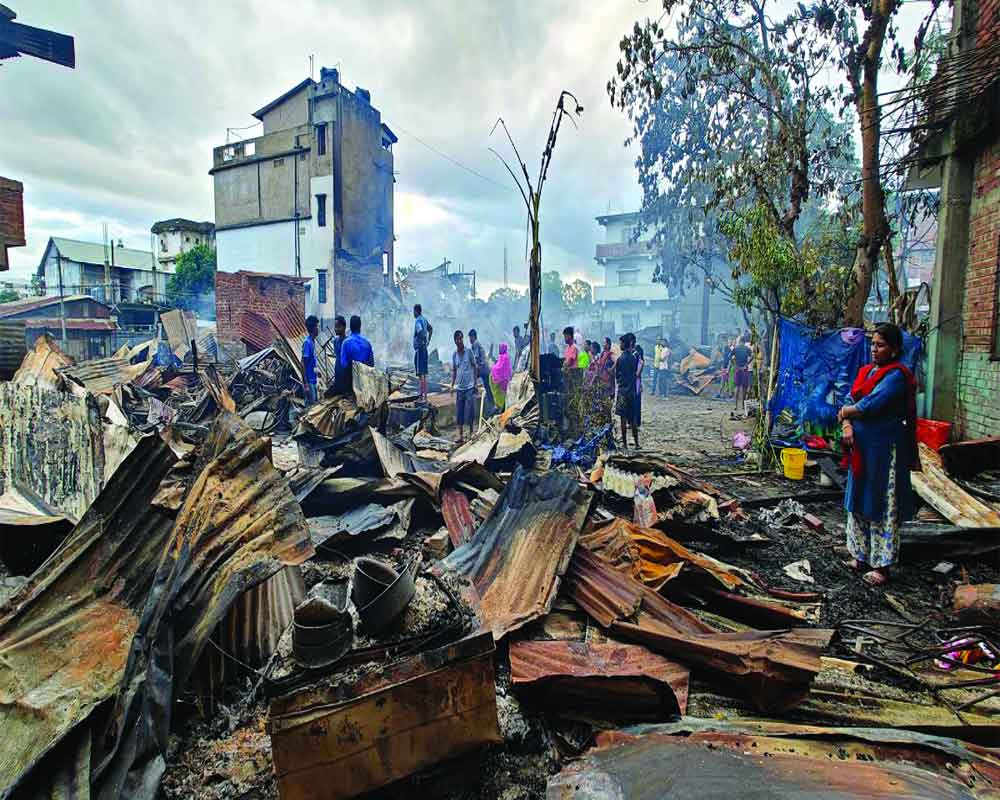Internal strife, insurgency and a sense of alienation plague the Seven Sisters, much like the Kashmir of yore
India’s Northeastern region has for long experienced insurgency, internal conflict and unrest and the challenges have often been exacerbated by its complex history, geographical isolation and perceived neglect by the Central Government. One of the most prominent facets of the restive Northeast is the internecine wars within its borders, fuelled by a variety of factors ranging from ethnic tensions to resource disputes, leading to cycles of violence and displacement. The region’s strategic importance, owing to its proximity to China and Southeast Asia, has made it a battleground for competing geopolitical interests, thus complicating the situation.Traditionally, the conflict in the Northeast has been fuelled by a lack of identity with the Indian mainland, the role of external powers like China, Myanmar and Bangladesh, tribal/communal differences among its inhabitants and fault lines in the subdivision of Assam which led to the creation of other Northeastern states. Indeed, the region’s woes stem from several factors, which are reflected in its turmoil. Economic underdevelopment and lack of infrastructure exacerbate feelings of marginalisation and deprivation, providing fertile ground for insurgent movements to recruit disaffected youth. Moreover, the region’s porous borders, particularly with Myanmar and Bangladesh, help insurgent groups set up base and launch attacks on our security personnel. Cross-border infiltration and support to insurgent groups by external actors have been persistent challenges for India’s security establishment.
The Army’s long presence in the region Delhi’s apathy has been a recurring theme in the Northeast. The Armed Forces (Special Powers) Act (AFSPA), enacted in 1958 amidst the Naga Hills ‘uprising’, is a constant irritant that the locals feel reflects New Delhi’s deliberate attempt to strip them of their rights and dignity. It is one of the most despised Acts in the region and stands between the Centre’s goodwill and the Northeastern people. Currently, the AFSPA is enforced fully in 31 districts across four Northeastern states and partially in 12 districts. The alienation has manifested in various forms, including widespread boycott of elections, as communities express their disillusionment with the political process. The latest manifestation has been in Manipur, bordering Myanmar, where violence began on May 3 last year when hill tribal groups clashed with the ethnic majority Meitei over economic benefits and job and education quotas. Regrettably, since Independence, this area has not been fully integrated into the mainstream. Not only have many insurgent groups representing various communities been waging war against the Indian Union, internal strife and communal differences have also not been reconciled. The lack of inclusive approach to addressing the root causes of the unrest, coupled with sporadic attempts at peace talks and development initiatives, has led to instability that shows little sign of abating. Only through sustained efforts and genuine political will can the region hope to achieve peace and stability.


























